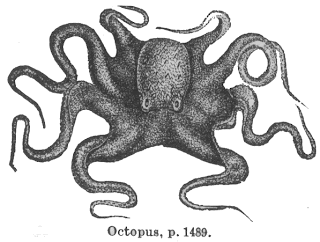As you might have surmised, I have a vivid imagination. It serves me well as a writer and for those moments in life when there’s nothing to do but make my own entertainment, like when I'm waiting around in the doctor’s office for some unpleasant exam and the only magazines in the rack are two months old and about parenting or boating.
My small-child parenting years are far behind me, thank goodness. I have a canoe, but the only time I’m interested in it is when I’m sitting in it, trying to cast a fishing line with enough poise and grace as to avoid tipping Mr. Wren and me into the drink. Being rather wren-shaped, this requires both concentration and luck on my part.
But back to the point. Sometimes, having a vivid imagination can be a drawback. Like now. Yesterday I wrote about the terrible image of U.S. soldiers enforcing martial law on U.S. streets and the even worse concept of our local law enforcement officers turned into apparatchiks of an American police state.
Yeah, I know. “Hey, Wren – see any black helicopters lately?”
Well, no. But honestly, for anyone with even a little imagination, who needs ‘em?
With the U.S. mid-term elections just about 48 hours away, this morning’s headline is that Saddam has been sentenced to hang, as we all figured he would be, eventually. This was a no-brainer, as Mr. Cheney likes to say.
But you won’t convince me that the timing of the verdict’s announcement wasn’t arranged some time ago. After all, there are only two days to go before Americans go to the polls to vote on whether or not our government’s system of checks and balances will start functioning again and restrain our rogue president and his administration. Saddam being sentenced to death sends a dark, positive message to the mouth-breathers among us.
But here’s the memory my piqued imagination dredged up yesterday, and like a musical ear-worm, it won’t go away:
During the lead-up to the Gulf War, Americans living in Germany were encouraged to be particularly careful as they went about their daily lives. That conflict was not terribly popular outside the U.S.; no one knew, really, how it was going to turn out. Saddam promised us the “Mother of All Wars,” and terrorism of many stripes had long been a threat in Europe.
So we Americans were cautioned – gravely and seriously -- to be on the lookout for terrorist attacks.
I lived in the American housing area some four miles from the U.S. Army post in Bremerhaven. Our apartments were in the middle of a quiet German neighborhood. There were no gates, thank goodness, to separate us from them, nor indeed any signs. We lived in a few long blocks of four-story apartment buildings with parking in front of each one, and with two-lane streets separating the blocks. Large, four-lane German boulevards surrounded us, and it was just a short walk to the local German bakery, the coffee store and the bus lines.
Because of the war America was about to engage in, we were encouraged by the Army authorities to check beneath our parked cars for limpet bombs before we opened the door to get in – or indeed, before we even touched our cars. Once we’d determined that the car was safe (though I always wondered exactly what it was I was looking for, since they didn’t tell us that), we were free to go where we had to go. If it was to work, though, we were encouraged to vary our route getting there from day to day. This would throw potential attackers off somehow.
I went along. For most of us, that meant foregoing the most direct and easiest route, which took about 10 minutes. One alternative was to drive all the way through the city, around to the industrial and shipping harbor, and then finally to the back gate of the Army post – a route that meant a 25-minute meander. We could add another 10 minutes – and avoid potential bad guys – by passing by the back gate and circling the post until we reached the front gate, which was the one we’d have come to if we’d taken the 10-minute option.
Another alternative was to head out of the city and take the narrow farm roads back across the moorland, which once again would put us at the front gate of the post. I liked this particular route, actually, as I often got to see harrier hawks, European buzzards and kites on the fenceposts.
Once at either gate, our ID cards would be checked by the gate guard and we’d wait while a couple of military police officers ran a mirror on a long stick under our cars, looking for those dreaded limpet bombs. Random cars would be pulled to the side for a thorough search, inside and out.
Then we’d be waved through.
You see a lot of uniformed soldiers on an Army post, naturally. They’re wearing their fatigues and combat boots or, if there’s something special going on, dress greens. For a civilian, it takes a few days to get used to seeing all those soldiers everywhere, but you quickly grow used to it. Only the military police carry arms, and they’re fairly innocuous.
But in wartime, that changes. I saw a many more soldiers carrying rifles (presumably with the clips in their pockets, since the war wasn’t taking place in Bremerhaven) and wearing, instead of caps, combat helmets. And there were many more everywhere on the post, formed up in marching groups, training for deployment.
In the headquarters building where I worked each day, the doors were manned by soldiers in full OD-green chemical MOB gear, complete with gas masks and M16s. They were training to survive Saddam’s threatened chemical weapon assaults.
It’s a very strange feeling to hand a tall, bulky soldier with a very large gun your ID card so you can be checked before entering a building. He can’t talk to you – the mask muffles his voice. You can’t really see him, either – the mask lets you see, vaguely, only his eyes. He looks formidable and menacing.
I always felt bad for these guys, because I’d practiced with MOB gear myself years back, and I knew it was hard to move in, hard to breathe in and miserably hot and sticky inside.
But we were on alert. The Army was mobilizing.
The memory that comes back to me most clearly was the nice day I was outside in the housing area, walking the dog, and what should come rumbling down the middle of street but a Heavy Military Vehicle – Humvee – complete with a soldier in full combat gear manning a machine gun from the turret in the roof. These vehicles were brand new back then, and the U.S. Army in Bremerhaven had only gotten theirs the year before. Even as an Army Public Affairs staffer, I’d only seen them once during an exercise.
But here it was. Huge, wide, long and oddly flat, with a jungle camouflage paint job, it made me think of a Jeep on steroids. The dog and I stopped – as did the other people out and about – and watched as it went by. The soldier manning the gun didn’t crack a smile. The incongruity of seeing this military fighting vehicle in the middle of a civilian housing area was striking – and chilling.
They were there, of course, to make a show of protecting the American housing area from terrorist attacks. And while their presence was, as it turned out, completely unnecessary, they also served to make the spooked dependents of the soldiers who lived there feel a little bit safer.
But I didn’t feel safer. Frankly, I never felt like I was in any danger at all, until I saw that HMV that day with its big gun and bandolier of bullets ready to fly.
Long after I returned to the States, I was driving along a suburban street one day and what should I see fall in behind me but the silhouette of a HMV – massive, menacing, unmistakable. I did a double-take – and then realized that it was one of the first Humvees made for rich American civilians, a gigantic, shiny black monstrosity driven by a tiny blonde woman in a workout suite.
No gunner, of course.
Now we see Humvees all over the place. They’ve even come out with some smaller models, even sillier to see on American roads than the originals. Yet I can’t see any of them without looking, involuntarily, for that gunner, that grim-faced young man who, I hope, really didn’t want to have to turn his weapon on anyone.
And that brings me, full circle, back to yesterday’s post and the image of camouflaged HMVs – with gunners, driven by armed soldiers -- on the streets of home, enforcing the curfew mandated by martial law, in turn mandated by a mad president and his administration who’ve been given far, far too much power and who’ve taken, wholesale and without permission, that much more.
Sometimes, a vivid imagination is deeply uncomfortable. I don’t want to see this particular image in real life ever again.












